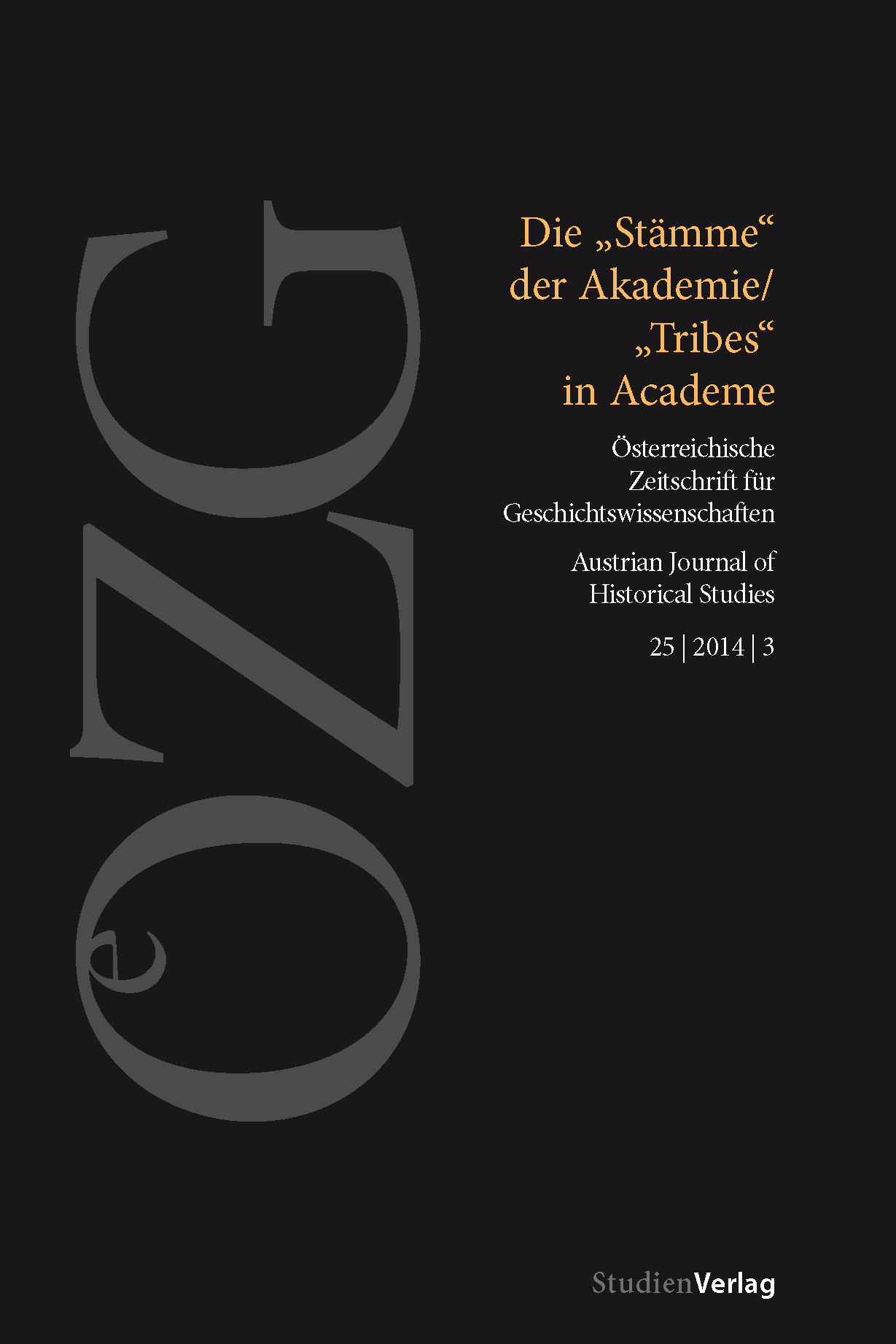Matte farbige Schatten: Zugehörigkeiten des Gelehrtenpolitikers Carl Heinrich Becker
DOI:
https://doi.org/10.25365/oezg-2014-25-3-8Schlagworte:
Carl Heinrich Becker, University History, Science and Politics, Orientalism, Political Aesthetics, Subjectivity and Identity, Occasional PoetryAbstract
In this paper, I explore the case of Carl Heinrich Becker (1876–1933), an early-twentieth-century Orientalist who turned politician and served in the Prussian ministry of cultural and educational affairs in various positions from 1916 to 1930, from 1925 as cabinet minister. The paper discusses Becker’s interactions with fellow scholars; the aesthetic programs underlying his and his colleague’s philological work and sense of political values; his programmatic political proclamations; and a batch of unpublished poetry preserved in his archives. I propose to analyze Becker’s career in terms of different identitarian constructions that have to do with academic “tribes and territories”. Drawing on the work of Claude Lévi-Strauss, I propose a model of how these identitarian constructions were related to each other in a system of asymmetric interdependence. In the terms set forward by this proposal, it then seems attractive – as well as instructive in a larger context – to regard Becker’s seemingly idiosyncratic political orientations and sense of self as actual functions of his ambiguous position as a go-between of the academic and political systems in interwar Prussia.


